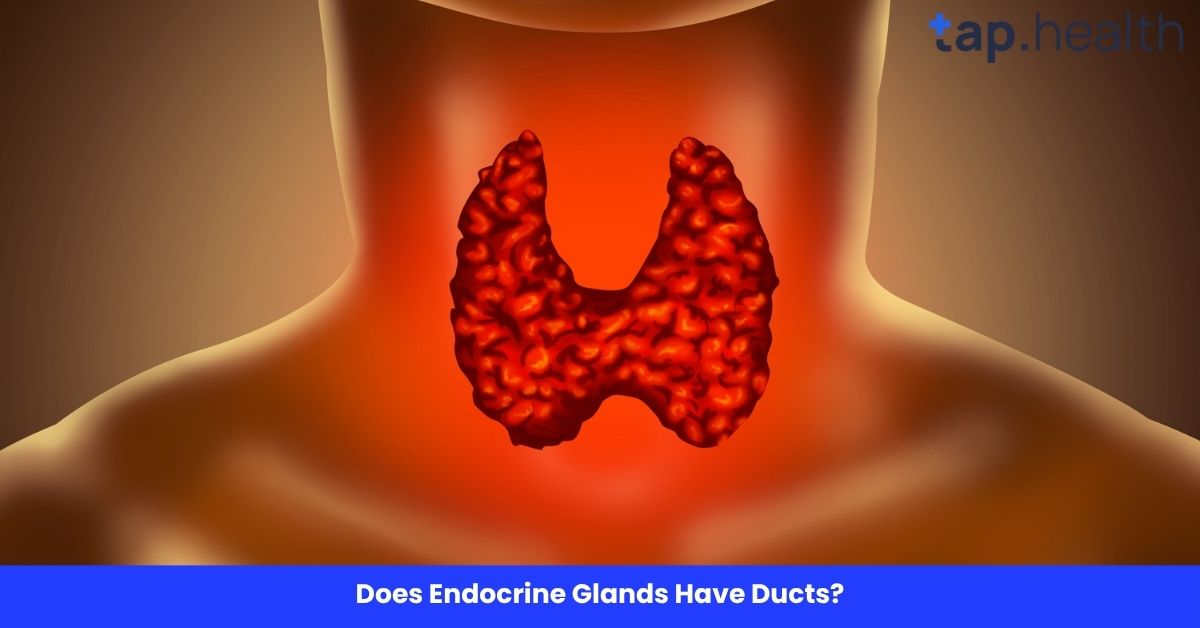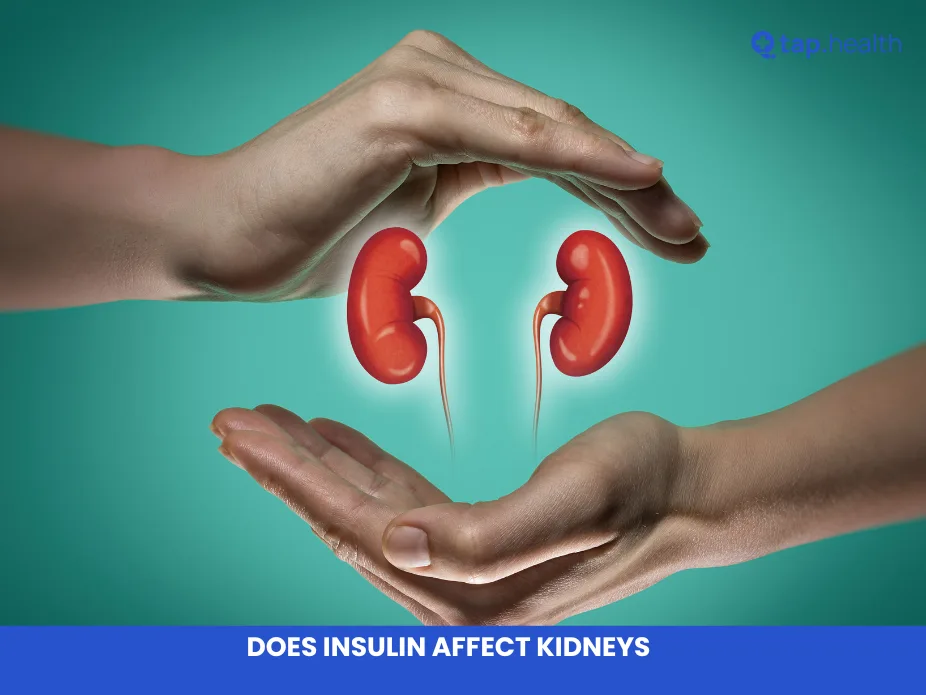The human body is a complex network of organs and systems, all working in harmony to keep us healthy and functioning. One of the most important systems in the body is the endocrine system, which consists of several endocrine glands. These glands play a vital role in regulating various body functions by producing and releasing hormones.
If you’ve ever wondered whether endocrine glands have ducts, you’re not alone. This is a question that often comes up when studying the human body. In this blog post, we’ll answer this question in detail and explore everything you need to know about endocrine glands, their functions, and how they differ from other types of glands.
What Are Endocrine Glands?
Before we dive into the question of whether endocrine glands have ducts, it’s important to understand what endocrine glands are and what they do.
Definition of Endocrine Glands
Endocrine glands are specialized glands that secrete hormones directly into the bloodstream. These hormones act as chemical messengers that travel through the blood and regulate the activity of various organs and tissues in the body. Endocrine glands are part of the endocrine system, which plays a central role in controlling and coordinating many essential functions, including growth, metabolism, mood, and reproduction.
Characteristics of Endocrine Glands
- Ductless: Endocrine glands do not have ducts. They release hormones directly into the blood for distribution throughout the body.
- Hormonal Secretion: The main function of endocrine glands is to produce and release hormones that regulate different bodily functions.
- Targeted Action: The hormones produced by endocrine glands affect specific target organs or tissues that have receptors for those hormones.
Examples of Endocrine Glands
Some examples of endocrine glands in the body include:
- Pituitary Gland: Known as the “master gland,” it controls other endocrine glands and regulates growth and metabolism.
- Thyroid Gland: Produces hormones like thyroxine (T3 and T4), which regulate metabolism.
- Adrenal Glands: Produce adrenaline and cortisol, hormones that help the body respond to stress.
- Pancreas: Produces insulin and glucagon, hormones that regulate blood sugar levels.
- Ovaries (in females): Produce estrogen and progesterone, which control reproductive health.
- Testes (in males): Produce testosterone, which regulates male reproductive health and secondary sexual characteristics.
Do Endocrine Glands Have Ducts?
The answer is no — endocrine glands do not have ducts.
Why Don’t Endocrine Glands Have Ducts?
Endocrine glands are ductless because they release their products, hormones, directly into the bloodstream. The bloodstream acts as a transport system, carrying the hormones throughout the body to specific target organs or tissues. This is in contrast to exocrine glands, which do have ducts and release their products into cavities or onto surfaces.
The lack of ducts allows endocrine glands to secrete hormones directly into the body’s internal environment (the blood), where they can have widespread effects on distant organs. These hormones are carried by the blood and can travel to various tissues, influencing bodily functions.
How Do Endocrine Glands Secrete Hormones?
Endocrine glands secrete hormones through a process known as secretion. Here’s how it works:
- Hormone Production: Endocrine glands produce hormones in response to signals from other glands or organs, like the hypothalamus or pituitary gland.
- Release into the Bloodstream: Once the hormones are produced, they are released directly into the blood vessels that surround the gland. This is because endocrine glands do not have ducts to carry their products to a specific surface or cavity.
- Transport: The hormones travel through the bloodstream to various organs and tissues in the body. They then bind to specific receptors on target cells, triggering a response that regulates specific body functions.
This system ensures that the hormones produced by endocrine glands can have widespread effects on the body, influencing processes like metabolism, immune function, and growth.
How Do Endocrine Glands Differ from Exocrine Glands?
To further understand why endocrine glands do not have ducts, it’s helpful to compare them to exocrine glands. Exocrine glands are another type of gland in the body, and they do have ducts.
Exocrine Glands and Their Ducts
Exocrine glands are glands that secrete their products through ducts to a specific surface or cavity. These glands do not release their products directly into the bloodstream. Instead, they release substances like enzymes, saliva, or sweat to specific locations.
Key Features of Exocrine Glands:
- Presence of Ducts: Exocrine glands have ducts that carry their secretions to a surface or cavity, such as the skin, digestive tract, or mouth.
- Secretion of Substances: Exocrine glands produce a wide range of substances, including enzymes (for digestion), sweat (for temperature regulation), and mucus (for lubrication).
- Localized Action: The products of exocrine glands generally have a localized effect, such as aiding in digestion or lubricating body tissues.
Examples of Exocrine Glands:
- Salivary Glands: These glands produce saliva and release it into the mouth through ducts. Saliva helps with digestion and keeps the mouth moist.
- Sweat Glands: These glands produce sweat and release it through ducts onto the surface of the skin, helping to regulate body temperature.
- Liver: The liver produces bile, which is released into the small intestine through a duct to aid in digestion.
- Pancreas: In addition to its endocrine function (insulin secretion), the pancreas also functions as an exocrine gland by producing digestive enzymes that are released into the small intestine through ducts.
What Happens When Endocrine Glands Malfunction?
When endocrine glands do not function properly, it can lead to a range of health issues. For example:
1. Hypothyroidism (Underactive Thyroid)
When the thyroid gland does not produce enough thyroid hormone, it can lead to symptoms like fatigue, weight gain, and depression. This condition is often treated with hormone replacement therapy.
2. Hyperthyroidism (Overactive Thyroid)
When the thyroid produces too much hormone, it can cause symptoms like weight loss, rapid heartbeat, and anxiety. Treatment may include medication, radioactive iodine therapy, or surgery.
3. Diabetes
When the pancreas does not produce enough insulin (or the body does not respond properly to it), it can lead to diabetes, a condition characterized by high blood sugar levels. Insulin therapy and lifestyle changes can help manage this condition.
4. Adrenal Insufficiency
If the adrenal glands do not produce enough cortisol or adrenaline, it can lead to adrenal insufficiency. This condition can cause fatigue, weakness, and low blood pressure. It is often treated with hormone replacement therapy.
The Importance of Endocrine Glands in the Body
Endocrine glands play an essential role in regulating many functions of the body, such as:
- Growth and Development: Hormones control physical growth, development, and the maturation of various organs.
- Metabolism: The hormones released by the thyroid and pancreas regulate how the body uses and stores energy.
- Reproduction: Hormones like estrogen, progesterone, and testosterone control reproductive functions and sexual characteristics.
- Stress Response: Hormones like cortisol and adrenaline help the body respond to stress and maintain homeostasis.
Without the proper functioning of endocrine glands, the body would struggle to maintain balance and regulate many vital processes.
Real-Life Scenario
Consider someone experiencing fatigue, weight changes, or irregular heartbeat. These symptoms could be related to hormone imbalances from endocrine glands like the thyroid or adrenal glands. Since these glands don’t have ducts, the hormones travel through the blood to reach the target organs, affecting multiple body functions simultaneously.
Expert Contribution
Endocrinologists emphasize that the ductless nature of endocrine glands allows hormones to act systematically rather than locally. This design ensures precise regulation of bodily functions. According to experts, even small hormone imbalances can cause significant physiological effects, highlighting the importance of healthy endocrine function.
Recommendations Grounded in Proven Research and Facts
- Regular check-ups: Blood tests can detect hormone imbalances early.
- Healthy lifestyle: Diet, sleep, and exercise support optimal endocrine function.
- Awareness of symptoms: Unexplained weight changes, mood swings, or fatigue may indicate endocrine issues.
- Professional guidance: Consult an endocrinologist for persistent or severe symptoms.
- Scientific backing: Studies show that endocrine glands, being ductless, are highly efficient in systemic hormone distribution, making early detection and prevention crucial.
Frequently Asked Questions (FAQs) on Does Endocrine Glands Have Ducts?
1. Do endocrine glands have ducts?
No, endocrine glands do not have ducts. They secrete hormones directly into the bloodstream, which allows them to have widespread effects on various organs and tissues.
2. What is the difference between endocrine and exocrine glands?
Endocrine glands secrete hormones directly into the bloodstream, while exocrine glands have ducts that carry their products to specific surfaces or cavities, such as sweat or digestive enzymes.
3. Why do endocrine glands not need ducts?
Endocrine glands release hormones directly into the blood because they need to have a widespread effect on various organs and tissues throughout the body. This method of secretion allows the hormones to travel to distant target organs.
4. What are some examples of endocrine glands?
Examples of endocrine glands include the pituitary gland, thyroid gland, adrenal glands, pancreas, ovaries, and testes.
5. What happens if endocrine glands malfunction?
Malfunctions in endocrine glands can lead to a variety of disorders, including hypothyroidism, hyperthyroidism, diabetes, and adrenal insufficiency. These conditions can disrupt normal body functions and may require medical treatment.
6. How do endocrine glands control the body?
Endocrine glands control the body by releasing hormones into the bloodstream. These hormones act as chemical messengers that travel to specific organs and tissues, regulating processes like metabolism, growth, and reproduction.
Conclusion
In conclusion, endocrine glands are ductless glands that play a critical role in regulating many functions in the body. They secrete hormones directly into the bloodstream, allowing them to have widespread effects on organs and tissues. Unlike exocrine glands, which use ducts to release their products, endocrine glands are vital for maintaining balance and coordinating various bodily processes.
Understanding how endocrine glands function and their role in the body helps us appreciate how these small but powerful glands influence our health. By keeping these glands healthy, we can support overall well-being and ensure our body functions optimally.



